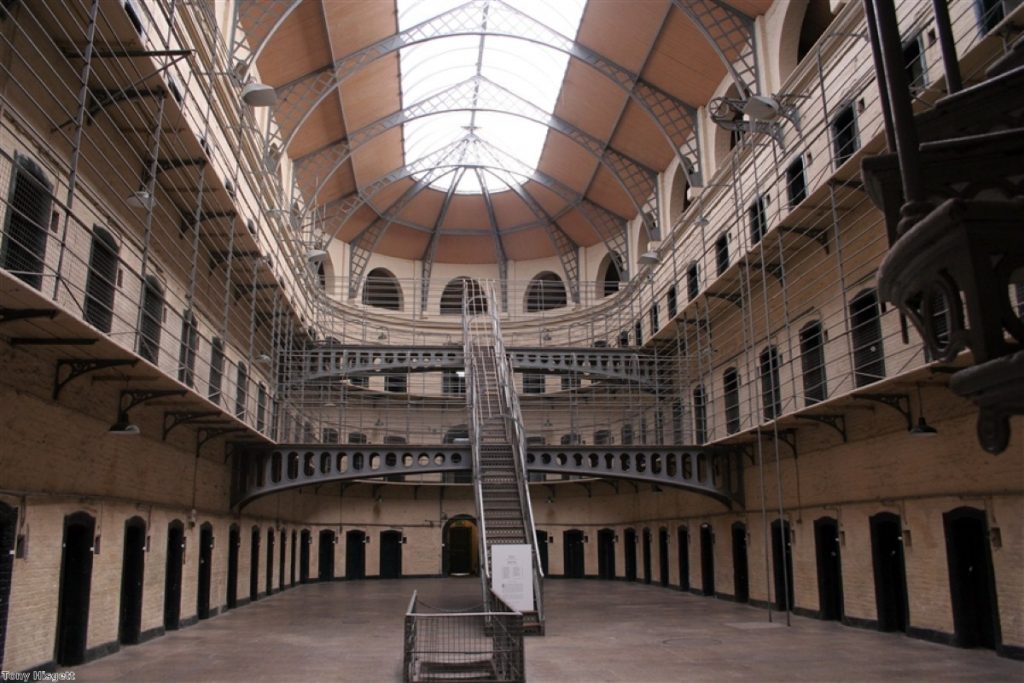Analysis: Prisoner voting matters (sort of)
Later this week MPs will be dividing on one of the most divisive issues of early 2011 – prisoner voting. Whips have relinquished their grip for once, meaning backbenchers have a free hand in deciding which way to go.
This matters, because the European court of human rights (ECHR) is posing a challenge. It recently ruled that prisoners must be granted the vote. But Tory MPs, in particular, aren’t keen on the idea of giving criminals a say in deciding who runs the country. The fact that it’s a European court which is overriding them makes the issue more potent still.
This all explains why the backbench business committee has decided to put the matter to the test this Thursday. MPs will decide whether they want to overrule the ECHR. Ministers will abstain, as will members of the shadow Cabinet, making this a genuinely free vote. If they decide to defy the ECHR they’ll have to pay compensation claims from inmates expected to be worth at least £100 million.


Or will they? Unfortunately for people who believe in the notion of parliamentary sovereignty, the answer is ‘not necessarily’.
As the prime minister’s spokesman explained to journalists, “we’ll listen to what parliament has to say”. But it won’t be bound by what the Commons says. If a British court awards compensation to someone and parliament says it shouldn’t be paid, it would be difficult for the government to go with parliament over a court, Downing Street said. “The government has to comply with the law. If a British court rules something is illegal, parliament has to comply with the law.”
So the Commons will express its view on Thursday, but the government won’t have to do anything about it. Parliament is only sovereign when it comes to making laws.
David Morgan, a constitutional expert at the Open University, summed up: “It’s a bit of moral pressure put on the government.”
It’s the principle that matters, of course. Even though the decision itself is not binding, ministers will be armed with the ammunition they need to pressure Europe – or even take firmer action.
In the context of the broad narrative of British politics, this might seem like a sideshow. It’s hardly spending cuts, is it? But it matters. Priti Patel, an Essex Conservative MP, sums up the mood. “My constituents and people across the country are fed up with Europe meddling in our domestic affairs and human rights being used as an excuse for being soft on crime and letting criminals off the hook,” she says. “Europe’s decision to attack our laws… is disgraceful. This case is yet another reason why parliament needs to assert its sovereignty over Europe and ensure that British people make British laws.”
Prisoner voting goes against most of the Conservatives’ deepest instincts: a rejection of European interference and a tough stance on law and order. But they don’t have a majority in the Commons, so even if they were to vote en masse there would not be the victory Patel and others are seeking. It will be up to Labour and the Lib Dems to make up parliament’s mind on the issue.
Lib Dems, pro-European and extremely pro-human rights, can be expected to point out that even those in jail deserve a vote. It might seem far-fetched, but some are pointing out giving prisoners the vote acts as a deterrent to governments jailing large numbers of people to prevent them having their say. Their instincts are to back the European court.
Labour MPs face the real test: the decisions of individual MPs about where their priorities lie will reveal much about whether the party has moved on from its anti-civil liberties impulses of the New Labour era. Is the new generation really that new? We’re about to find out.












